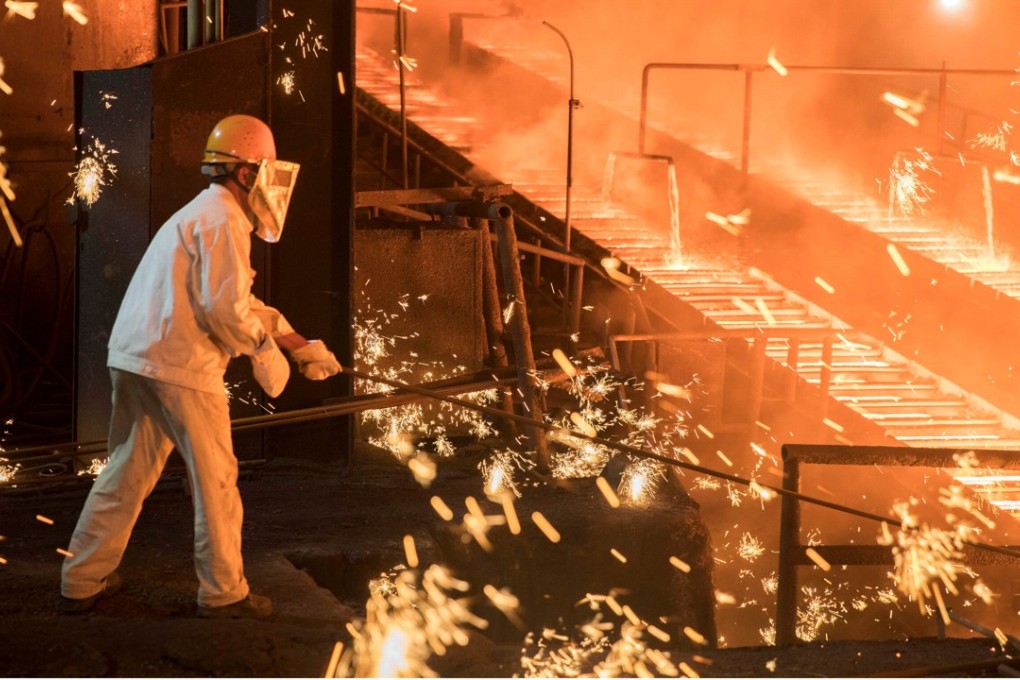From steel mills to shipbuilders, how ‘Xiconomics’ is playing out in China
Beijing’s campaign to cut capacity and rebalance the economy is a boon for some, but the task is still far from finished

As Beijing residents enjoy the cleanest air since data became available in 2012, change is also in the air in the steel producing region 300km (186 miles) east of the capital.
Tangshan – where one-tenth of the country’s steel is produced – has slashed 36 million tonnes of capacity in the past four years, with a number of plants shut down in the city. Those that remain are frequently disrupted by important events such as the Communist Party congress in October, when all of them were told to suspend production for weeks.
But the closures are a boon for the bigger plants that are still running, with rising product prices and a steady stream of trucks from downstream clients waiting to be loaded, according to the manager of a state-owned mill.
“We saw a big improvement in profits last year, and the year-end bonuses will be paid soon,” said the manager, who declined to be named as he is not authorised to talk to the media.
He added that many privately owned mills were told to close because their facilities were not up to date or they could not get the government approvals needed.
“What is most striking is the adjustment in our product mix,” he said. “We’ll be producing more high value-added products like automotive sheet rather than rebar used for construction.”